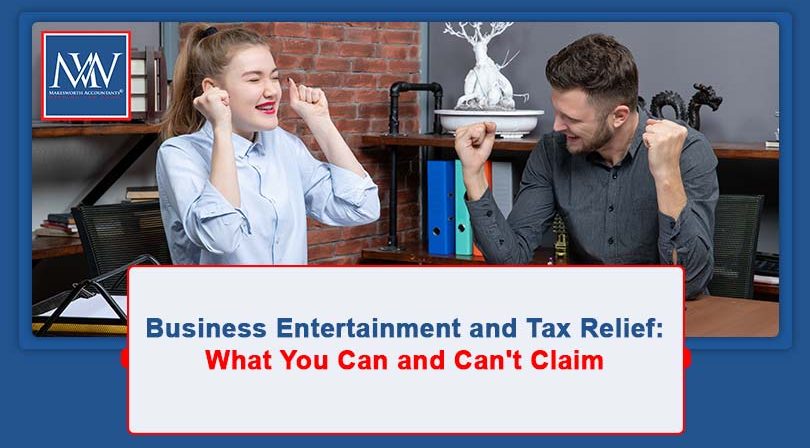
Business Entertainment and Tax Relief: What You Can and Can’t Claim
Understanding Business Entertainment Rules
When claiming tax relief on business entertainment, HMRC has made its stance clear: most entertainment costs are not tax-deductible and cannot be used to reclaim VAT. Even if the expense is a legitimate part of running a business, it’s generally not allowed. However, there are some crucial exceptions worth understanding.
What Does ‘Entertaining’ Mean?
Although HMRC does not provide a strict legal definition of “entertaining,” the term is interpreted broadly. It covers any form of hospitality given free of charge. According to HMRC’s Business Income Manual (BIM45034), a useful test is to ask: Would the business have incurred this expense if no guests were present? If the answer is no, then the cost is likely to be classified as entertainment.
For example, if an employee or director takes a client out for lunch, the entire cost—including the employee’s meal—is considered business entertainment and, therefore, not tax-deductible. The reason? The lunch wouldn’t have happened without the client present.
That said, light refreshments like tea, coffee, or biscuits during business meetings are generally accepted as allowable expenses—so long as the primary purpose is business, not hospitality.
The Key Exceptions
1. Entertaining Employees
When entertainment is provided exclusively for staff members, such as a team-building event or an office party, the rules are more generous. In these cases, both tax relief and VAT reclaims are typically allowed.
However, if the event is only for directors or business owners, or if it includes non-employees (like family members), then VAT recovery and tax relief may be restricted. That said, if directors attend a party with other employees—and the event is open to all staff—then the expense is usually allowable.
The well-known £150 annual function exemption also applies. This allows businesses to host annual events (like a Christmas party) costing up to £150 per head, which can be claimed as a benefit even if the only employees are directors.
2. Entertainment Under a Contractual Agreement
If hospitality is provided as part of a paid service or contractual agreement, then tax relief and VAT recovery may be allowed. The key is that the business must receive something of measurable value in return—like part of a commercial package.
For example, if a client event includes catering and the cost is built into the price paid by attendees, then the hospitality element could be tax-deductible. But if all you receive is a minor gesture in return (like a survey response), this won’t qualify. HMRC specifically notes that a “purely nominal service” doesn’t justify tax relief.
Staying Compliant: Record-Keeping Matters
To remain compliant and avoid penalties, businesses should keep detailed records of all entertainment expenses. These records should include:
- Names of attendees
- Business purpose of the event
- Invoices and receipts
- Breakdown of costs (to separate any disallowed portions)
These documents must be retained for at least six years, especially if VAT is being reclaimed.
In Summary
While business entertainment is generally not deductible for tax or VAT purposes, there are notable exceptions. Employee-related events and contractual hospitality arrangements can qualify—if managed carefully. The key is to understand the intent behind each expense, document it thoroughly, and ensure it aligns with HMRC’s expectations.
Further Reading:
For more information, Book a Free Consultation
Need Accountancy Support?
For information on bespoke training, or if you have any other questions for Makesworth Accountant, please fill in your details below
















 151
151